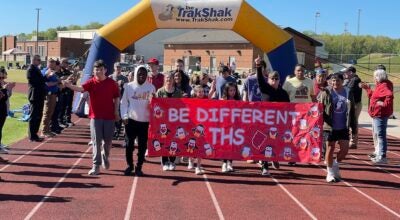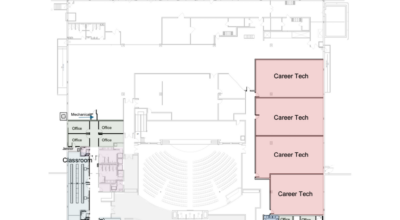Clinic gives hope to county’s uninsured
Published 2:54 pm Tuesday, September 30, 2008
The health department donated space, faith and community groups donated money and now volunteers plan to donate time, all with the same goal in mind — providing free health care to uninsured residents of Shelby County.
Shirley Worthington, who works with United Way of Central Alabama, said she’s been surprised by the community’s enthusiasm.
“This had been on the hearts and minds of numerous community groups,” Worthington said. “Everyone determined what they could bring to the table and did it. It’s exactly this kind of community commitment that is so exciting to watch.”
A task force of doctors, ministers, county officials and community members presented the idea of a free health clinic at a town hall meeting held in Alabaster last year.
On Oct. 7, just a little more than a year later, organizers will train the clinic’s first group of volunteers.
Volunteer Blakley Moore said the project offers a chance to conquer a problem many people don’t see.
“Even going into my job as a social worker has been a huge eye-opening experience,” Moore said. “I had no idea people lived in the conditions they do even in Shelby County.”
In 2005, 28 percent of emergency room visits at Shelby Baptist Medical Center were uninsured patients. United Way projections show 7,000 county residents are uninsured.
Shelby County Department of Human Resources director Chris Monceret said the clinic was designed with those people in mind.
“Alabama really does a pretty good job providing health care to kids,” Monceret said. “It’s adults that slip through. If someone can’t afford medical care they aren’t going to get it. I think it’s sinful that we have so many people suffering.”
Initially, organizers plan to open the doors of the clinic one day a week at the Shelby County Health Department in Pelham. Doctors will see 25 patients each night on a first come, first serve basis.
Patients must be between 19 and 64 years old, must prove they live in the county and that they live at or below 200 percent of the poverty level.
If patients are diagnosed with a serious condition, the clinic has a pool of specialists on board who will take a certain number of clients. Volunteers also plan to help patients apply for free medication through drug companies.
Social worker Ashley Fulton of Calera said she sees the need every day.
“With my job I see so many clients who can’t go to the doctor and because of that they can’t take care of their children,” Fulton said.
Clinic Executive Director John Ramono said about 100 volunteers have already committed to serving but others are still needed to fill spots on both the clinical and non-clinical sides.
He said once initial training is completed, volunteers would participate in a trial run Oct. 9 and then open the clinic Oct. 16 from 5:30-8:30 p.m.









